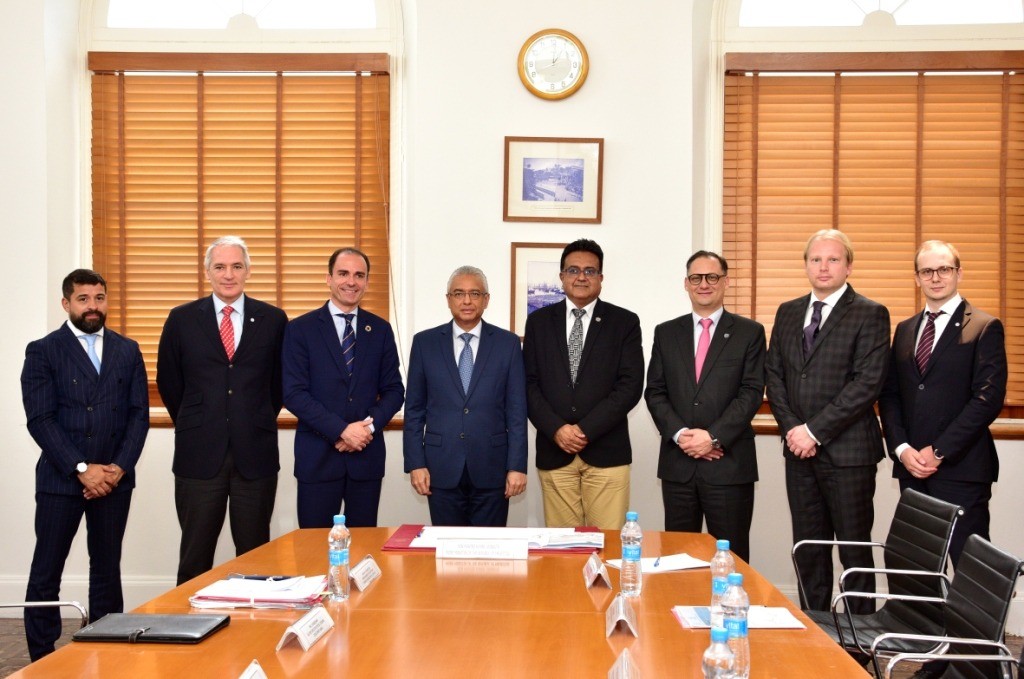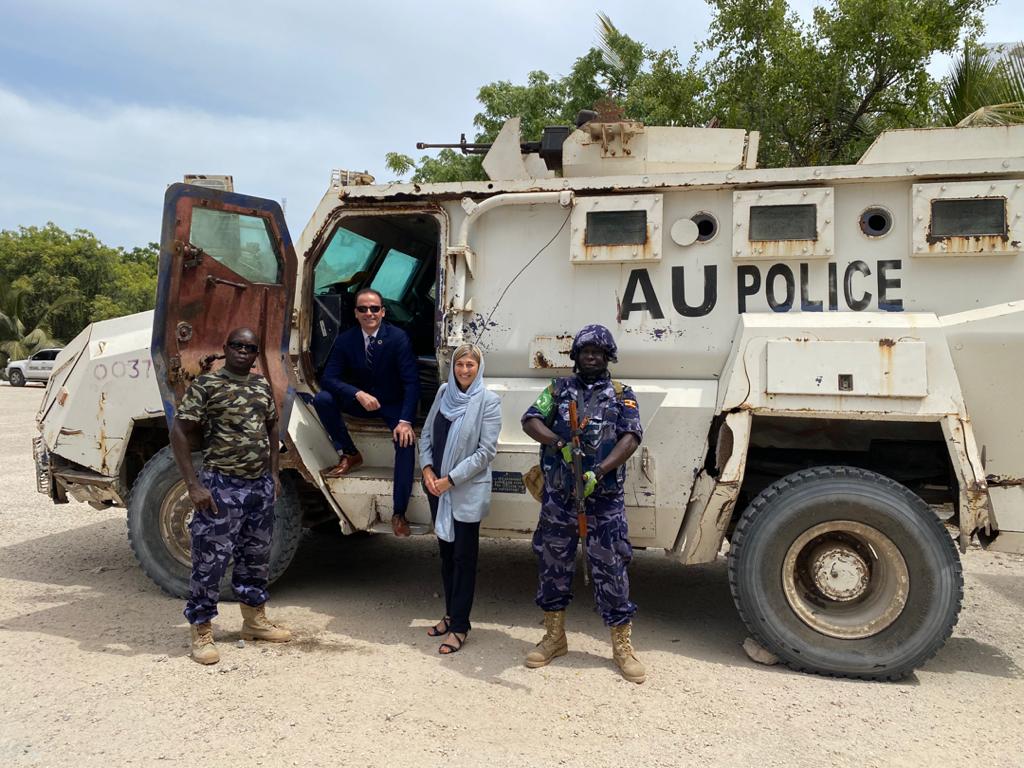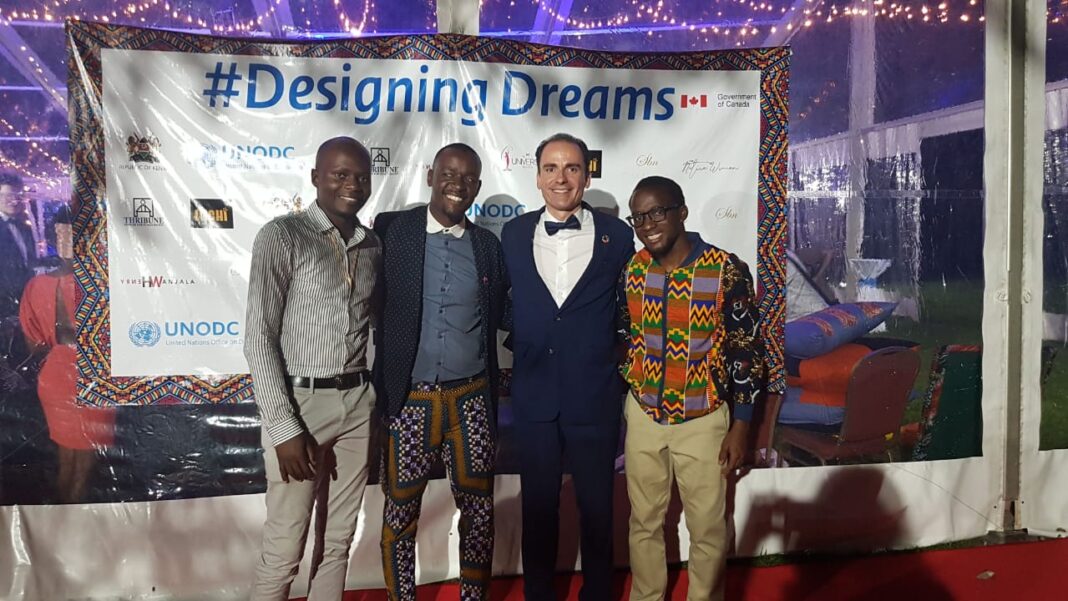KENYA. Nairobi. Amado de Andrés is the Regional Representative for Eastern Africa for the United Nations Office on Drugs and Crime (UNODC). An economist and criminal lawyer, he started his career as a JPO in the World Bank Group (WB) in the Philippines. Then, he joined the Department of Peacekeeping Operations in Kosovo during the Yugoslav wars and next the UNODC. He was the UNODC Regional Representative for Central America and the Caribbean before assuming his current position. Today, his team comprises 197 people, 92% of whom are women. And if you happen to watch Netflix, you might have seen him talking about heroin. In The Business Of Drugs series, the UNODC features prominently in episodes three and four. Transcontinental Times interviews Dr. de Andrés to gain insight into what international challenges lie ahead and how partnership strategies can help enforce their mission.
UNODC mission and mandates
UNODC is the top leading UN Agency providing advisory services and technical assistance to the Member States in the implementation of different UN programs. The United Nations Convention against Corruption (UNCAC), the United Nations Convention against Transnational Organized Crime (UNTOC) and its Three Protocols, the Three UN Drug Conventions of 1961, 1971, and 1988, the 19 universal instruments against Terrorism, the Nelson Mandela Rules for the treatment of prisoners, and criminal justice programs.
The UNODC mandates focus greatly on human rights in the areas of justice, security, and health. Prevention, information campaigns, training, and programs to avoid re-victimization of human trafficking victims are crucial. Therefore, the UNODC has mandates to fight corruption, organized crime, drugs, and human trafficking, and wildlife environmental crimes. These apparently unrelated areas are intrinsically linked though, as Dr de Andrés explains: “poachers come with corruption.”
We need to focus on the Digital Agenda, Innovation, the 2030 SDG agenda, and the Green Deal
Dr de Andrés is very clear about what is needed in the current international socio-economical climate. “Innovation, implementing the 2030 sustainable development agenda (SDG), and the Green Deal”. Although Dr. de Andrés describes COVID-19 as an unprecedented crisis, he firmly believes that together we will overcome it. In fact, he considers that the solidarity Europe showed the 21st July 2020 by approving a €750 billion COVID-19 recovery fund and the bloc’s long-term budget (which will amount to €1.82 trillion for the 2021-27 period) is “historical and needed in order to leave no one behind, especially those most vulnerable, like the elderly and the young.”
“The Spanish government played an instrumental role in crafting this deal”. The main axis of action for Spain has been officially presented by the government on the 7th of October. The recuperation program will invest 37% in the green transition and 33% in digital transformation. According to Spanish Vide-President Carmen Calvo “This is an opportunity Spain cannot miss.” Among other things because the plan aims to create 800.000 quality jobs thanks to the green transition strategy. This joint effort is paramount to tackle another crisis. “Climate change is a fact and we need to do something drastic today” Dr. de Andrés asserts.

Universal problems require collaboration
Corruption, crime, climate change, and the COVID-19 crisis are universal, and so are Dr. de Andrés required three points of action. In fact, tackling these issues requires a comprehensive and transversal approach. United Nations Agencies, Funds and Programmes, private and public sector, and civil society have an active role in changing the same mentalities that condone corruption. “A change in mentality requires at least 20 years” as Dr. de Andrés explains, and it must be addressed by the entire society. The responsibility of offices such as the UNODC to facilitate productive partnerships is clear: “if we don’t deliver, the UN will disappear.”
Eastern Africa: challenges and local projects
“Eastern Africa is a natural partner for the European Union and its Member States. For example, countries in the region such as Kenya, Rwanda, or Mauritius, are transforming their economies into vibrant fintech incubators. The UNODC and the UN Resident Coordinator’s Office in Mauritius have supported the Government in the establishment of a Fintech ecosystem. It includes a first-ever e-wallet called PayByDodo complemented by a world-class Fintech platform called “Xange” supported by UNODC and NASDAQ. These platforms will allow the public and the private sectors to launch SDG-certified crowdfunding operations by mid-2021. Such projects will focus on building sustainable housing for the youth; creating durable solutions to preserve the marine ecosystem in Mauritius while supporting innovation and investments.”
There are challenges ahead in the Eastern Africa region. They are related to the increase in drug trafficking ”mostly heroin from Afghanistan, traveling in dhows through the Southern Route,” a fluid transnational organized crime network, and the Al-Shabaab terrorist presence. If we add to these COVID-19 socio-economical effects in the region, the chances of young actors joining terrorist groups are high.
We need peace in the entire region

As Dr. de Andrés explains: “we need peace and stability in the entire Eastern Africa region.” Creating sustainable opportunities for the young in these areas is paramount to reducing the risks of young people joining transnational organized crime networks and terrorist groups. On the one hand, the UNODC works with the Member States offering state-of-the-art and tailor-made technical support and training. Also 21st-century digital technology to prevent malpractice and corruption in the case of e-procurement; e-justice; e-policing; e-prisons; etc.
On the other hand, they work alongside local projects that allow the most vulnerable to have opportunities to avoid falling prey to transnational organized crime terrorist groups. Member States are in the driving seat; UNODC supports their transformative agendas as a robust UN partner on the ground. This is also part of an inclusive partnership program that aims to involve all sectors in tackling systemic social issues. These partnerships are designed and promoted by the UNODC also by strengthening local interaction.
In a next article article Transcontinental Times interviews Cruz Sánchez de Lara and Maria de Paz. They are implementing a project alongside UNODC in Kenya that offers a sustainable employment opportunity for ex-incarcerated young women. This is but one of many examples of what partnerships and collaboration can do to promote sustainable change, opportunities, and peace.



